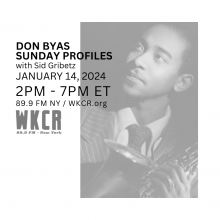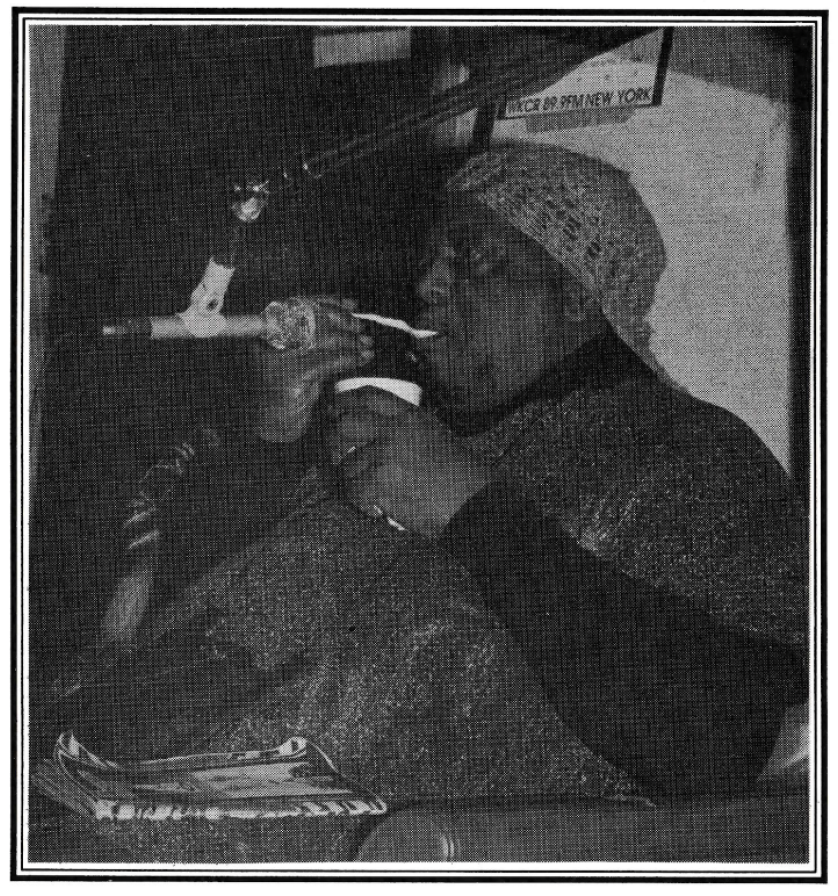
Sid Gribetz presents a five hour radio program celebrating the career of tenor saxophonist Don Byas this Sunday, January 14, 2024, from 2-7 PM on WKCR FM Profiles.
A prolific and influential figure on the national jazz scene during the World War Two years, Byas moved to Europe in 1946 and remained an expatriate for the rest of his life. While he achieved some celebrity on the continent, sadly his absence from the US has left him a somewhat forgotten figure in our music here.
Carlos Wesley Byas was born on October 21, 1913 in Muskogee, Oklahoma. His paternal grandfather was a blacksmith, and his father a jeweler. His maternal grandfather was a reverend and real estate investor and scion of an educated family. Young Byas lived a middle class life and attended HBCU Langston University. There was always music in the house, and Carlos played several instruments before settling on the saxophone.
As a teenager, he was already playing professionally, and he teamed often with his fellow Muskogee friend Jay McShann. They played in various “territory bands” around the Southwest. While in college, Byas led a band calling himself “Don Carlos and his Collegiate Ramblers”, and the moniker Don stuck. Byas went to Los Angeles in his early twenties, played with major bands there, and struck up a friendship with Art Tatum. Eventually he moved to New York City in 1939, and became a fixture in the vital scene here.
Major highlights of his career include a stint with Andy Kirk and a relationship with Mary Lou Williams; being hired by Count Basie from 1941-43 to replace Lester Young when Prez left; participating in the revolutionary jam session scene at Minton’s; performing with all the greats such as Coleman Hawkins and Dizzy Gillespie and influencing a young Charlie Parker (Byas participated in many of the seminal bebop recordings); and an amazingly fertile output leading dozens of record dates and appearances on 52nd Street New York clubs from 1944-1946. Then he left it behind to take up residence overseas.
Byas had a productive career in Europe settling first in Paris and then in Amsterdam and raised a family there. He died of cancer in 1972 at the age of 59. Byas had an inventive harmonic sense stemming from the lessons absorbed from Tatum and a powerful, roaring attack to go with it. At the same time he possessed an absolutely luscious tone and was a ballad master. The bluesy southwestern swing background also informed his playing with a tasty, down to earth flavor. While he came up together with the beboppers he can’t be said to be one, yet integrated their ideas as well.
Other saxophonists from Bird to Johnny Griffin to Sonny Stitt have said that he was the best. Hear for yourself on Sunday and see if they’re right.
